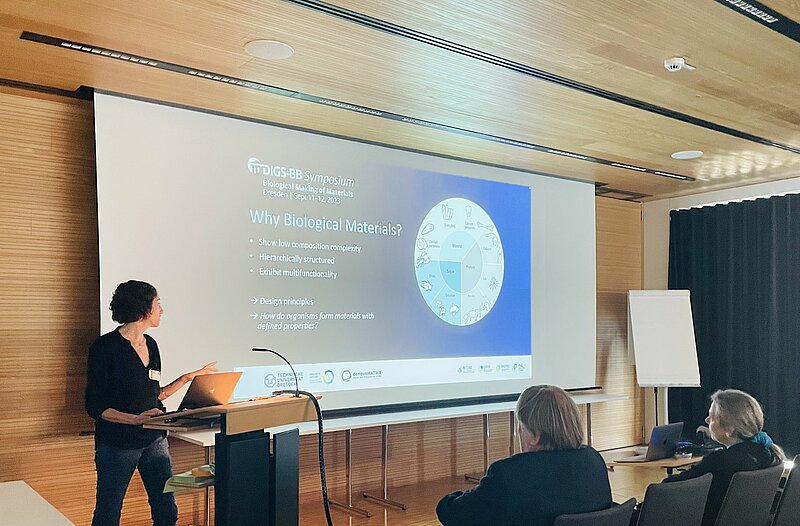The Dresden International Graduate School for Biomedicine and Bioengineering (DIGS-BB) Summer School 2023, which took place from September 11th to the 15th, 2023, engaged Master’s and advanced Bachelor’s students. This event explored the principles of how organisms precisely control and fine-tune their inherent properties.
By gathering the best experts on this topic from institutions such as the Physics of Life (PoL), Center for Regenerative Therapies Dresden (CRTD), Biotechnology Center (BIOTEC), Center for Molecular Bioengineering (B CUBE), Faculty of Biology, and Max Planck Institute of Molecular Cell Biology and Genetics (MPI-CBG), alongside renowned external scientists specializing in biomaterial research, students had the opportunity to delve into the fundamental principles governing the formation of a diverse array of biological materials. They were also introduced to cutting-edge tools used for scientific investigation through a series of engaging scientific talks, methodological lectures, and hands-on sessions conducted within state-of-the-art laboratories.
A standout moment during the event was the keynote talk by Dr. James C. Weaver, from the Wyss Institute for Biologically Inspired Engineering at Harvard University. Dr. Weaver captivated the audience with his insights into high-resolution multi-material additive manufacturing. This talk took place at the Deutsches Hygiene Museum and even featured the use of 3D glasses to enhance the experience.
In addition to the talks during the school, PoL research group leaders also made significant contributions. Prof. Dr. Elisabeth Fischer-Friedrich shared her profound expertise in Nanomechanics, while Prof. Dr. Benjamin Friedrich provided valuable insights into the modeling of pattern formation. Furthermore, Dr. Rita Mateus shed light on the relationship between form and function at the subcellular scale, specifically in the context of zebrafish biomineralization.
The event attracted a highly selective group of students, reflecting our commitment to nurturing and inspiring the next generation of scientists by providing them with access to the most cutting-edge technology and knowledge available.
